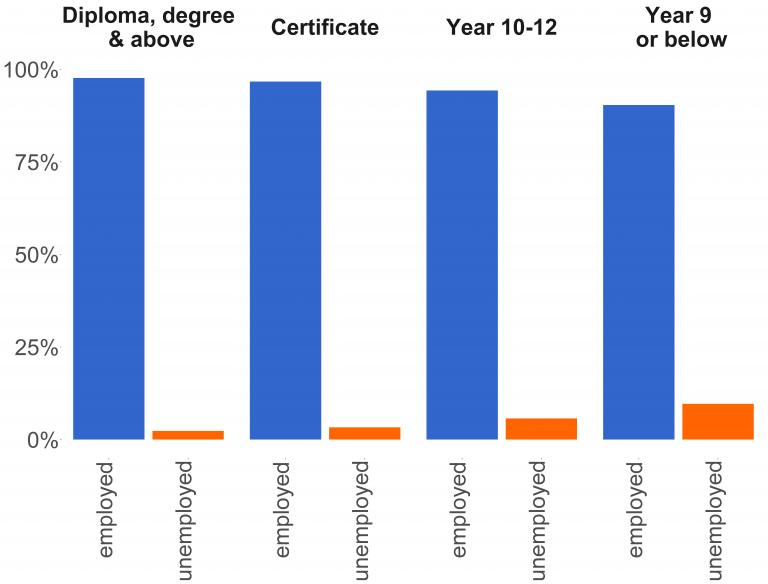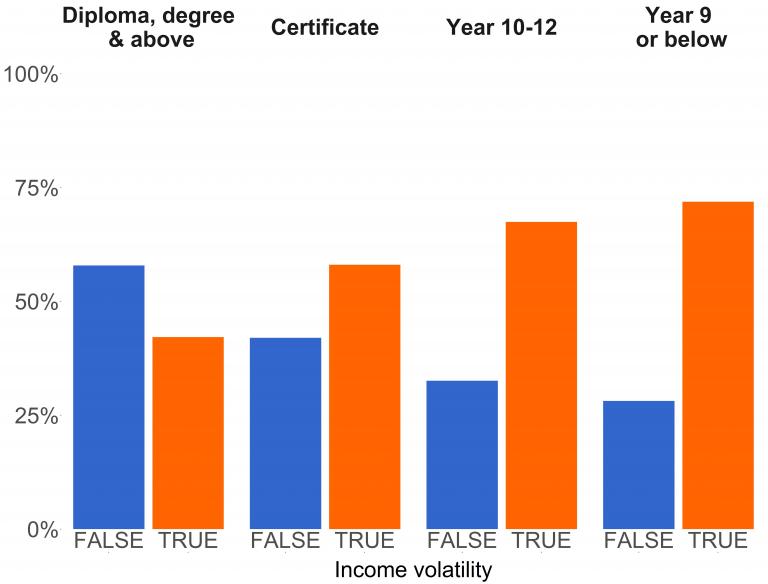
Finishing school and lifetime learning are key determinants of employment status, income and income stability for 77,794 workers who live in this region (Figure 1 and Figure 2).
Figure 1 Employment Status for workers with different educational profiles in the Darwin region (MADIP)
| All workers | Indigenous workers |
|---|---|
Figure 2 salary levels for workers with different educational profiles in the Darwin region (MADIP)
| All workers | Indigenous workers |
|---|---|
This analysis also highlights the value of the Northern Territory’s Indigenous Education Strategy which focuses on ensuring Indigenous students have a successful education journey and have real career choices and options. An education also results in income stability for Indigenous workers in the region. Income volatility can be a real challenge facing Indigenous people who have not completed secondary school (Figure 3).
Figure 3 The Influence of education on income volatility for Indigenous workers in the Darwin region (MADIP)








